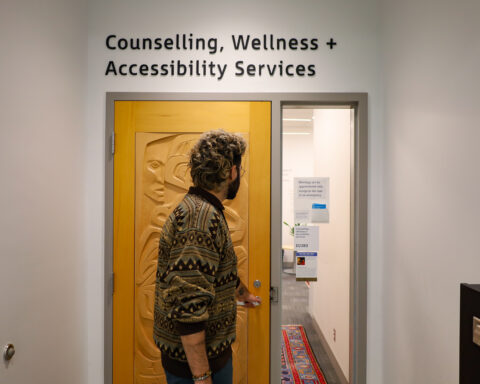On April 25th, parents attended a workshop titled “Supporting our Children through Anxiety and Stress,” at Silver Stream Public School. According to the Canadian Mental Health Association Ontario (CMHA), “1 in 5 children and youth in Ontario has a mental health challenge. About 70 per cent of mental health challenges have their onset in childhood or youth.” Early identification and intervention is critical and can lead to better academic achievement and a healthier life.
Mental health is a state of contentment which includes our emotional, psychological, and social well-being. How we think, feel and act towards ourselves and others, is affected by our mental health. Common mental health disorders include anxiety, depression, eating disorders, substance abuse and attention deficit disorder (ADD/ADHD). The CMHA’s Mental Health Week runs between May 6-12 this year.
Stress at School, Stress at Home
Leisha Zamecnik is a registered social worker and the founder and executive director at Common Compass. Zamecnik says the number of students referred to school counsellors because of symptoms of anxiety has rapidly increased. Several young people have approached her after her workshops she said, and there’s a common narrative. “I feel trapped, I have so much on my plate with schoolwork and extracurricular activities. My parents have such high expectations for me. I’m trying my best but I can’t sleep, I’m so anxious and my teachers and parents don’t understand me. I want support,” the students tell her.
Galeni Hinja* attended the workshop, he sees technology as our biggest source of stress. Hinja says over-reliance on technology can “foster addictive behaviours” and makes people less social, less productive and less physically active. His two kids, in grades 7 and 4, have shown signs of stress after getting bad marks or moving schools. Hinja believes it’s important to address these issues through dialogue, and some experts agree.
Maryum Rahman is a registered psychotherapist and an education and outreach facilitator at Naseeha Mental Health Helpline. “Really listen to what your child has to say and try not to jump to offering advice, instead ask what you can do to help,” Rahman advises. “Let your child know that they can talk to you about their thoughts, feelings, or difficult situations they’re dealing with.” Dealing with stress and anxiety can make it difficult for kids to attend school because of social and academic pressures.
Matters are often made worse when pictures, comments or videos on social media are involved says Rahman. “This can be extremely traumatizing and anxiety provoking especially if the youth is the subject of these recordings,” she says.
Fariha Jahan*, a mother of four, finds life more stressful because of social media, especially for children. “Social media is another concern. Everyone is always posting amazing pictures of their lives and this can make people feel despondent about their own lives,” she said.
Anxiety on the Rise
Anxiety manifests itself in many ways in children. Some symptoms to look out for include: negative feelings, headaches, stomach aches, over reaction to events, crying easily, excessive worrying, getting angry easily, difficulty sleeping, high expectations for oneself and so forth. Be mindful of sudden or unprovoked changes in the thinking, feelings or behaviour of your child. Some effective treatments for anxiety disorders include therapy, medication and counselling.
There are plenty of factors contributing to the rise of stress and anxiety we’re seeing: kids in multiple extracurricular activities, parents working long hours juggling 2 or 3 jobs, less access to support from extended family, the rise of the smart phone and other technological devices. All these things have placed a strain on today’s families.
“Kids don’t have downtime to relax and unwind and be with family and friends. There is no escape from the Internet,” Zamecnik said. “It’s available 24/7 and this puts a huge pressure on children.” To combat stress and anxiety, Zamecnik recommends parents to be mindful of how their family spends its time. Her tips include: encouraging open dialogue with children about mental health and emotions, role modelling self-care, practicing good sleeping habits, eating healthily and connecting with family instead of devices. Experts also recommend gratitude journaling, creative artwork, poetry and apps such as Headspace or Calm which promote mindfulness meditation.
Living With Mental Illness
According to the Mental Health Commission of Canada (MHCC), more than 6.7 million people in Canada are living with a mental health issue today. Of that 6.7 million, an estimated 1.2 million are children and youth, according to the MHCC. Less than 20 per cent of those children and youth will receive appropriate treatment, and by age 25, approximately 20 per cent of Canadians will have developed a mental illness, the MHCC reports.
No longer can things be swept under the carpet. The rising epidemic of stress and anxiety in children shows that having good mental health is not a luxury but a necessity. Parents have to take an active role in maintaining their children’s mental well-being as well as their own. Unconditional love, acceptance and how we speak to our children can help them develop positive self esteem. Being emotionally available goes a long way in helping children to develop as people and to cultivate positive mental health.
*Names have been changed to protect privacy.
Sukaina Jaffer holds a Master’s degree in International Journalism. As a freelance journalist, she has written for New Canadian Media, The Guardian, Guardian Unlimited and The Independent.





